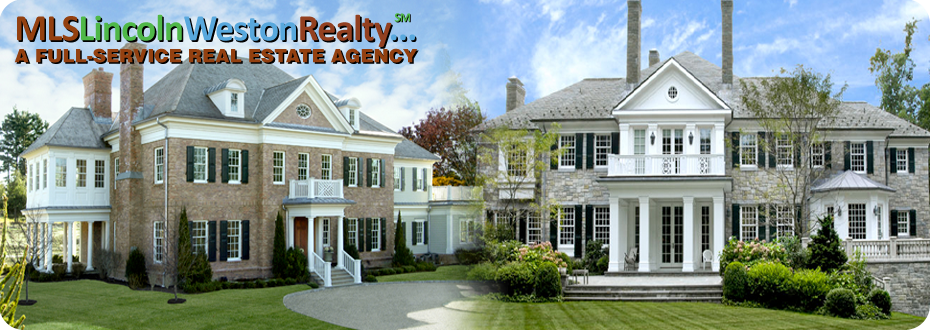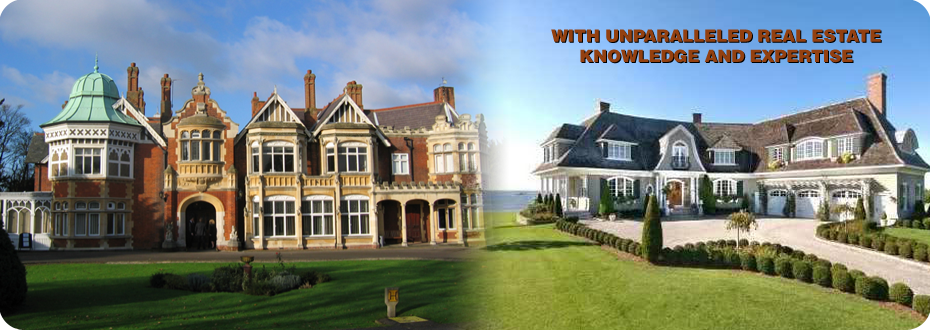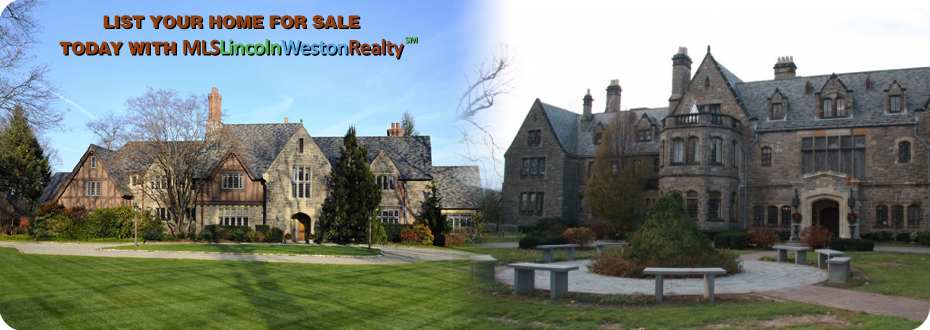August 2011 Blogs
4 Steps to Minimize the Risk of Owning a Home:
Not so long ago, in a not-so-distant land, owning a home was thought of as the safest "investment"
around. Fast forward to the present day, and home ownership seems super scary to many people who can afford homes, and
would like to own them, but are paralyzed by the fear of buying a lemon, or having a mortgage catastrophe.
Here are 4 simple steps to minimize the risk that you'll become the main character in a homeownership horror story.
1. Stick with a fixed-rate mortgage. Recent data shows that adjustable
rate mortgages, or ARMs, are increasingly popular, rising from 9 percent of the mortgage market in the fourth quarter of
2010 to 12 percent in the first quarter of this year.
This might seem crazy to some, but in financially aggressive crowds, the lure of low, 3 percent(ish) interest rates
on ARMs is enough to overcome any qualms. As well, today's ARMs tend to have lower lifetime interest rate caps and
require payment of principal, so they don't adjust as violently as the subprime interest-only and option ARMs that
contributed to the foreclosure crisis.
If the thought of your mortgage payment changing over time gives you the shakes, you don't want to live in a state of
interest rate obsession for the next few decades, or you simply crave the simplicity and predictability of knowing what
your housing payment will be for the next 15, 20 or 30 years, then stick to a fixed-rate mortgage. The rates are higher,
but with a fixed-rate loan, the risk of scary payment changes are not only lower, they are non-existent.
2. Put - and keep - a home warranty in place. One of the most frightening
things about going from renter to homeowner
is the prospect of being solely responsible for the care and feeding of your home and all its systems and appliances.
Responsibility for both the costs and the actual logistics of repairing things like a leaky roof, a broken hot water
heater or a haywire electrical fixture looms large in the minds of first-time buyers, in particular.
A home warranty plan kicks in when escrow closes, and depending on the coverage you select, will cover your home against
the breakdown of major systems and even some appliances, like furnaces and water heaters. In some cases, you can even
upgrade the coverage to protect against roof leaks and some plumbing issues. When a covered item breaks down, just
remember to call the home warranty company first - for the cost of a service call you can get the item repaired or
even replaced, if necessary. I remember the home warranty company replacing a $900 water heater in my first home;
what a godsend!
Talk with your agent - you might even be able to negotiate for the seller to pay for the first year's cost of the
warranty. Just remember to renew it when it expires every year, to keep a cap on your risk of unexpected repair
costs for the duration of your tenure as a homeowner.
3. Get repair bids and estimates, not just inspections. After you find the
home of your dreams (or the home of your
budget!) and get into contract, you'll have a contingency or objection period ranging from 7 to 17 days during which
you can obtain all the inspections you want. Most buyers start out with a general property inspection, a pest inspection
and a roof inspection, then get more specialized inspections if the property calls from it. Pest and roof inspectors
will generally provide an inspection report AND a repair bid for any work they find needs to be done.
But the overall home inspection could very well list a dozen needed repairs, upgrades and maintenance items, without
providing any information about how much those repairs will cost. If your inspection report surfaces work you'll need
to have done to fix things (or avoid bigger fixes down the road), work with your agent to schedule actual repair
contractors to come in and give you bids on the work before your contingency or inspection period expires. That
will position you to negotiate around repair costs with the seller, or to know what you're getting yourself into,
cost-wise, if you take the property as-is.
4. Buy on the 10-year plan. Warren Buffett once famously advised stock
investors to "only buy something that you'd be
perfectly happy to hold if the market shut down for 10 years." The same advice is good for buying a home in today's
real estate market. Take on a mortgage you know you can sustain, buy at a price you can comfortably afford and avoid
having to sell because you need to move for some urgent reason, or because the home no longer meets your needs.
You can take this last step to hedge against losing money on your home by planning your space, career and lifestyle
needs out 5, 7, even 10 years in the future - everything from how many bedrooms and garage spaces you'll need to where
you'll want to be located, geographically - and selecting a home that will meet those needs for that foreseeable future.
As a general rule of thumb, the harder hit the area was in the recession, the longer you should plan to hold it.
The #1 Reason Homes Don't Sell:
It's easy to come up with a short list of classic seller mistakes that hamper sales: poor
property preparation, no pictures, overpricing, sellers that insist on giving guided tours, distinct odors, ill mannered
dogs ... and so on.
There is, however, one mistake that stands head and shoulders above the rest. And ironically, I'm seeing this
issue actually grow in frequency to the point where it's seriously hampering our ability to sell homes to our buyers.
It's access. If we can't get in, we can't show the house. If we can't show the house, we can't
sell it. We frequently end up showing less than 6 because we can't get access to homes on the list. There are two
primary reasons:
1. Appointment Only. I understand that in some parts of the country,
"Appointment Only" is the only way to access properties. In those locales, sellers and buyer agents are well
trained and make it work. In contrast, here in the San Francisco Bay the majority of homes have always had lockboxes
and showing instructions have been some variation of, "Call, leave a message, GO, leave a card."
Once in a while a seller really needs to limit access to their home to specific times. Valid reasons include illness,
latch-key kids home by themselves, swing-shift workers sleeping during the day and so on. I do not include dogs, renters
or new plasma TVs in this list.
Of all of the listings we've done, we've only had one "By Appointment Only" - and it was an
uncooperative tenant. We work hard to help our sellers understand that buyers need access when it works for THEM,
not the seller. With proper instruction, sellers can be educated to understand that access is critical and will
subsequently cooperate.
2. No Lockbox. Just a few short years ago, we seldom, if ever,
encountered homes without a lockbox. Recently, however, that has changed. We've seen a marked increase in properties
without lockboxes. And, making a bad situation even worse, no contact information for the sellers. And to add injury to
insult: Realtors who don't answer their phones or respond to emails or texts.
100% of the REOs have a lockbox. Of the normal sales, 77% have lockboxes. Out of 115 short sales, however, an astonishing 60.87% DO NOT have a lockbox. And the majority of these also have no contact information for the seller, making it exceedingly difficult to get access.
The very sellers that, by necessity, need to make access the easiest are, in fact, making it almost impossible.
Since short sales represent such a high percentage of the market and typically have the lowest prices, these are the homes buyers are clamoring to see, and can't, in so many cases. Not only does this hamper sales, it also frustrates buyers (who cannot comprehend the lack of access) and, quite frankly, makes Realtors look like idiots.
In contrast, even though a significant percentage of our listings are short sales, we've only had one with no lockbox - ever - it had a Section 8 renter who absolutely refused to cooperate. This was a very specific case, and we now know what to do next time.
Without question the growing lack of access to homes is changing the very fabric of this market.
5 Ways to Improve Home Accessibility:
1. Overcome Seller Objections
Over the years, many of our sellers have told us they don't want a lockbox. While we understand they may have any number of reasons for this, we carefully explain why lockboxes are critical to obtaining top dollar, great terms and a successful sale. Once we explain the reasons why an electronic lockbox is necessary and the protections it provides (ie: electronic monitoring) they've ALL agreed to have one.
2. Allow Buyers Access When Buyers Are Available
I frequently call to make an appointment and, if I can actually get hold of the seller, I hear things such as, "We have an open house tomorrow," or "I'm won't be home when you are asking to come by," or "Gee, 1:00 is not good for me - can you make it at 6:30?"
I graciously explain that my buyers are available from 1:00 to 3:00 that day only, and, quite frankly, if we can't get in then, we won't be getting in at all. Time is at a premium and buyers have precious little of it. If we can't get into any specific home, buyers normally won't come back. They often feel that if a seller is too unreasonable to let them in when they're available, they'll probably be unreasonable in other areas as well.
3. Make Them Feel Safe
Some sellers don't like the idea that anyone can open the lockbox at anytime and access their home. In reality, if you are using a system such as SUPRA lockboxes, then only licensed Realtors with an electronic key can access the home. Our MLS monitors reports of stolen items and, from the information I've seen, chances are greater for robbery when OFF the MLS than on it. Electronic key boxes provide an audit trail of who entered the home and when. We provide our sellers with clear written instructions for allowing access to their home and tell them who NOT to let in and why. In reality, sellers are at the greatest risk during Open Houses, and we provide written instructions for our sellers to train them to prepare for these as well.
Renters often object to showing their home when the owner decides to sell - after all, if they cooperate, they'll be out of their digs. They often express "fear of theft" as their reason for not providing complete, unfettered access. First of all, if your listing is a short sale, then, quite frankly, renters should be gone. If it's a normal sale, I suggest you cut a deal with the renters by lowering their rent in exchange for their cooperation. Also offer to pay for their renter's insurance policy if they don't have one.
4. Map out Showing Hours if necessary
Occasionally a seller can allow access only during limited hours. Those working swing shifts are a prime example. We understand this and, once we've carefully mapped out hours that work, we ensure that the stated hours for showing are clearly written in the confidential comments section on the MLS. Since we also know that many agents DO NOT carefully read the confidential comments, we also program the electronic lock box to allow access only during the agreed upon hours AND we put a sign on the front door. During the available hours, buyers and their agents have full access.
5. Handle the Pets
Pets don't have to be a problem. I've sold homes with dogs, cats, iguanas, snakes and a host of other animals. Critters can be in crates, a specific bedroom with a "Do Not Open Door" sign ... with a padlock on it if you feel it's necessary. The garage and back yard also work. Buyers get it and they appreciate the access.
At the end of the day, it's all about training.
Trained properly, sellers can provide full access and ... get the best possible price and terms. In fact, the more access a seller provides, the more likely their home is to sell in a shorter period of time. And once their house is in escrow, they can settle down to a normal schedule with as few interruptions as possible.
7 Deadly Sins of Overpricing:
Most experts would advise that the best way to increase your odds of a successful sale is to price your
home at fair market value. But, as logical as this advice sounds, for many sellers it is still tempting to tack a few percentage
points onto the price to "leave room to negotiate." To avoid this temptation, let's take a look at the seven deadly
sins of overpricing:
1. Appraisal Problems: Even if you do find a buyer willing to pay
an inflated price, the fact is over 90% of buyers use some kind of financing to pay for their home purchase. If your home won't
appraise for the purchase price the sale will likely fail.
2. No Showings: Today's sophisticated home buyers are well
educated about the real estate market. If your home is overpriced they won't bother looking at it, let alone make you an offer.
3. Branding Problems: When a new listing hits the market, every
agent quickly checks the property out to see if it's a good fit for their clients. If your home is branded as
"overpriced", reigniting interest may take drastic measures.
4. Selling the Competition: Overpricing helps your competition.
How? You make their lower prices seem like bargains. Nothing is worse than watching your neighbors put up a sold sign.
5. Stagnation: The longer your home sits on the market, the more
likely it is to become stigmatized or stale. Have you ever seen a property that seems to be perpetually for sale? Do you ever
wonder - What's wrong with that house?
6. Tougher Negotiations: Buyers who do view your home may negotiate
harder because the home has been on the market for a longer period of time and because it is overpriced compared to the competition.
7. Lost Opportunities: You will lose a percentage of buyers who
are outside of your price point. These are buyers who are looking in the price range that the home will eventually sell for but
don't see the home because the price is above their pre-set budget.
Most buyers look at 10-15 homes before making a buying decision. Because of this, setting a competitive price
relative to the competition is an essential component to a successful marketing strategy.






